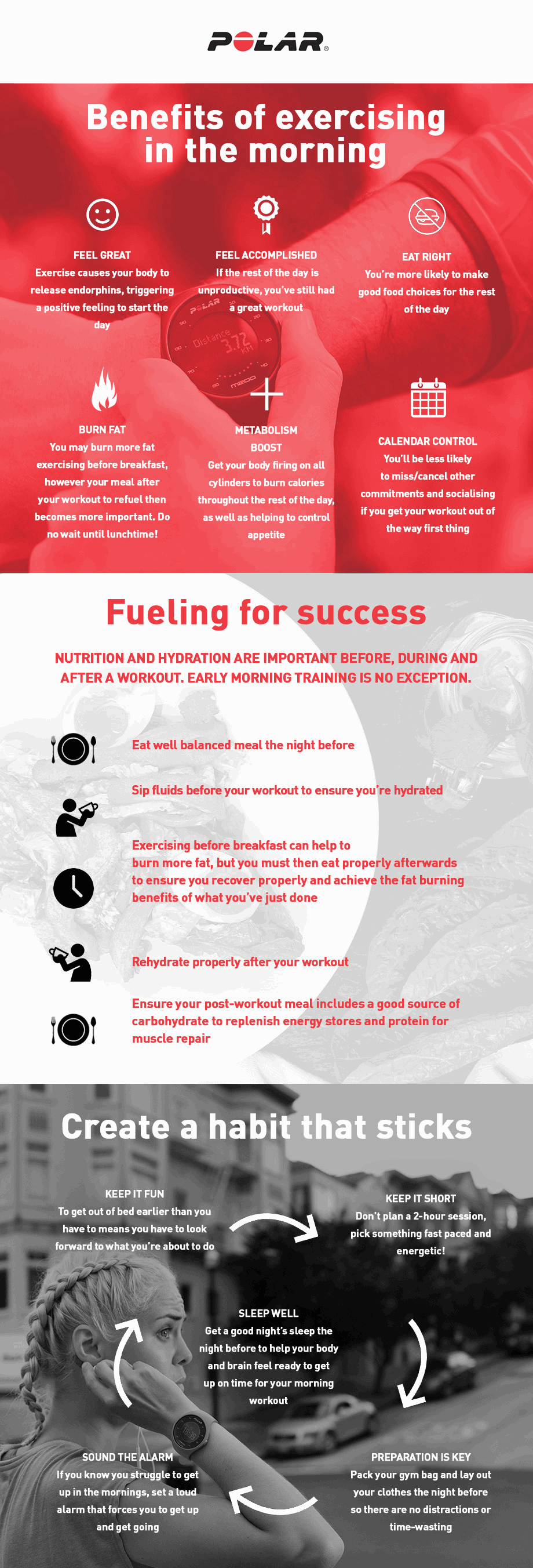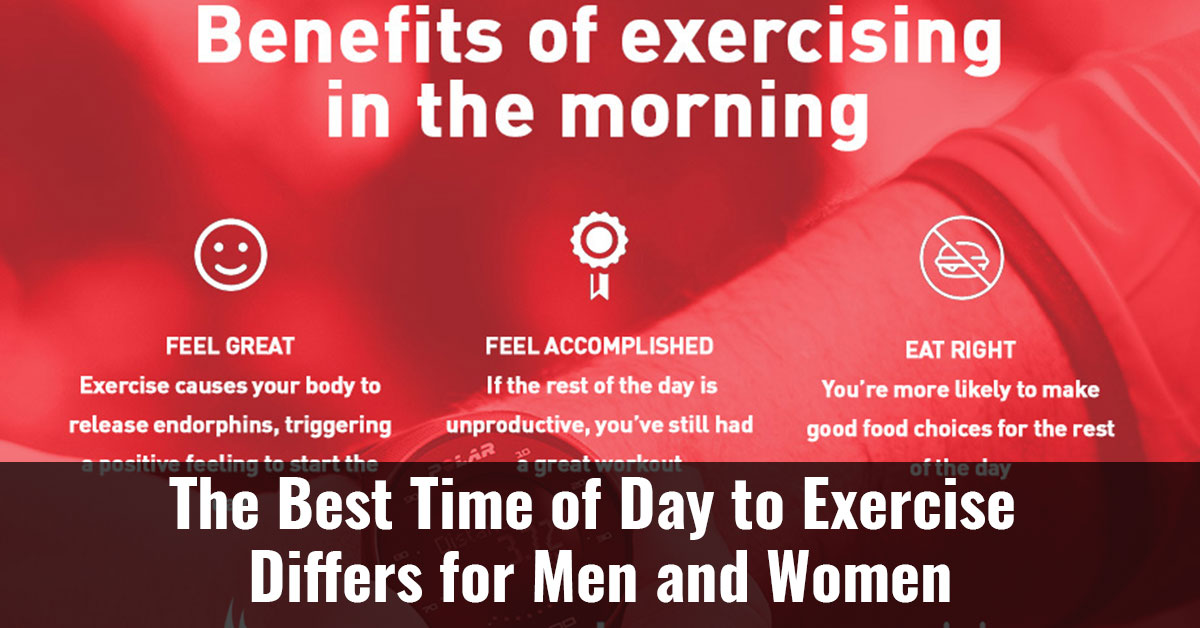A randomized controlled study confirms that the time of day that one exercises (ETOD) impacts the efficacy of exercise, and also reveals that these effects differ between kinds of exercise, and between men and women.1✅ JOURNAL REFERENCE
DOI: 10.3389/fphys.2022.893783
The results of the study show that exercising throughout the morning reduces blood pressure and belly fat for women, while exercising in the evening increases power, muscular strength, and endurance in the upper body, and improves nutritional satiety and overall mood.
The results also show that evening exercise for men reduces feelings of fatigue, heart disease risk, and blood pressure, and also burns more fat, in comparison to morning exercise.
The researchers recruited healthy, nonsmoking, and highly active men (26) and women (30) with a normal weight between the ages of 25 and 55 to participate in the study. They followed the RISE program previously developed by the researchers with training from fitness coaches for 12 weeks. The participants performed either an hour of resistance, sprint interval, stretching, or endurance training depending on the day of the week with 3 rest days. They adhered to a specially developed meal plan with a daily protein intake of between 1.1 to 1.8g/kg of body weight.
Male and female individuals had been independently randomized ahead of time to either of 2 routines: training exclusively for 60 minutes in the morning between 06:30 and 08:30 a.m., or 60 minutes in the evening between 6:00 and 8:00 p.m. Individuals who were allocated to morning exercise had breakfast after exercising and consumed 3 additional meals at intervals of 4 hours. Individuals allocated to evening exercise consumed 3 meals at intervals of 4 hours prior to training, in addition to another meal after training.
At the beginning and end of the study, individuals were thoroughly evaluated for their upper and lower body power and strength, muscular endurance, flexibility, aerobic power, jumping ability, and balance. Only 16% of the 56 enrolled individuals dropped out during the 12 weeks of the study, purely because they weren’t able to stick to the exercise and nutrition schedule.
Apart from the physical and metabolic parameter changes of the participants which included respiratory exchange ratio, arterial stiffness, blood pressure, and the percentage and bodily distribution of fat over the study, changes were also measured in relevant blood biomarkers, such as total and HDL cholesterol, insulin, IL-6, and C-reactive protein. Questionnaires were also administered to the individuals to quantify feelings of food satiety and mood changes.
The researchers found that all individuals improved in performance and overall health throughout the study, regardless of whether they were allocated to morning or evening exercise. The results demonstrated how both morning and evening RISE exercise improved mood and cardiometabolic health, and also physical performance in women and men.
The results also demonstrate that ETOD determines improvement strength in cardiometabolic health, body composition, physical performance, and mood.
As an example, all female individuals reduced their blood pressure, hip and abdominal fat, and total body fat throughout the study, but these improvements were more significant in women exercising in the morning. Only men who exercised in the evening experienced a reduction in their respiratory exchange ratio, blood pressure, the ratio of total to HDL cholesterol, and carbohydrate oxidation, as fat became the preferred source of fuel.
According to the results, women wanting to reduce blood pressure and belly fat, while at the same time increasing power in the leg muscles should think about morning exercise. Exercising in the evening is the best choice for women wanting to gain muscle strength in the upper body, improve endurance and power, as well as improve food intake and overall mood state.
On the other hand, exercising in the evening is perfect for men wanting to improve metabolic and heart health, in addition to emotional wellbeing.

Image Source – polar



